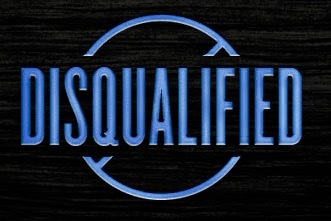Le v Chan ( Trustee) 2023 BCSC 1654 confirmed the law that a mortgage obtained by fraud, such a forgery is invalid.
A mortgage obtained by fraudulent means does not constitute a valid or enforceable charge on title to land in British Columbia: Credit Foncier Franco-Canadien v. Bennett (1963), 43 W.W.R. 545, 1963 CanLII 839 (BCCA) and Reliable Mortgages Investment Corp. v. Chan, 2011 BCSC 1080 at para. 39. Further, a mortgage granted by a party who lacks the valid authority to grant the said mortgage is invalid which accords with the legal principle of nemo dat quod non habet – one cannot give what one does not have: Reliable at para. 31; see also Land Title Act, RSBC 1996, c 250, ss. 25.1, 26(1), 26(2).
[34] Courts have held that when a mortgage application is found to be a forgery, the mortgage registered against title is a nullity, and will be unenforceable and the court will direct the registrar to discharge the mortgage: Homewood Mortgage Investments Ltd. v. Lee, 2008 BCSC 512.
[35] Put simply, a mortgage acquired fraudulently or for which the supposed mortgagor lacked the authority to grant is invalid and unenforceable. However, to rebut the deemed presumption that the registration evinces an interest, the party alleging the fraud must adduce evidence to establish the fraud. Accordingly, in the case at bar, Ms. Chan bears the evidentiary burden to provide “clear and cogent” evidence to establish, on a balance of probabilities, that the Mortgage was obtained by fraud and registered on title fraudulently through forged documents. As Madam Justice Wedge helpfully explained in Lloyd Investments Ltd. v. Wang, 2023 BCSC 303:
[22] As the plaintiff in this action, Lloyds bears the legal onus to prove its case against Ms. Wang. However, the evidentiary onus is on Ms. Wang to prove that the Lloyd Mortgage was entered into fraudulently through a forged power of attorney. The onus of proof with respect to the allegation of fraud advanced by Ms. Wang is on a balance of probabilities. Some authorities suggest that this onus can be met only with clear and cogent evidence. In the case of Bank of Montreal v. Chan, 2004 BCSC 841 [Chan], this Court held as follows at paras. 23-24:
It is common ground that the validity of the mortgage rises or falls with the validity of the powers of attorney.
The Chan respondents bear the onus of proving the powers of attorney to be forgeries. Although the standard of proof is on a balance of probabilities, the onus will not be met except with clear and cogent evidence: Continental Insurance Co. v. Dalton Cartage Ltd., 1982 CanLII 13 (SCC), [1982] 1 S.C.R. 164, 131 D.L.R (3d) 559 (S.C.C.) at 169-170.
[23] The “clear and cogent evidence” standard is not, however, a departure from proof on a balance of probabilities. In Wanson (Bristol) Development Ltd. v. Sahba, 2018 BCCA 260, the Court, after reviewing the case law on the issue, said at paras. 28-29: “What these cases stress that the party with the burden of proving a fact in issue must prove it on a balance of probabilities and on no higher standard, even if the fact involves criminal or other moral blameworthy conduct.”
[24] Most recently, in British Columbia (Director of Civil Forfeiture) v. Angel Acres Recreation and Festival Property Ltd., [2023 BCCA 70], the Court reminded us at paras. 162 to 164 of the decision of the Supreme Court of Canada in F.H. v. McDougal, 2008 SCC 53. In that decision the Court “put to rest any debate that a heightened standard of proof applies in civil cases involving criminal or morally blameworthy conduct”. The level of scrutiny applied by the finder of fact “does not change with the seriousness of the case”. However, the quality of the evidence required to meet the balance of probabilities standard “will depend upon the nature of the claim and of the evidence” adduced.



